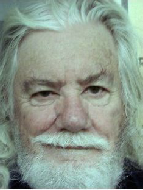The Annual Gathering of American Mensa is in progress on its traditional day, this year in Pittsburgh. More than a quarter-century passed, I attended my first (Regional) gathering in Monroeville, and discovered peers noted “tolerant,” if somewhat in some respects, “quirky” (?)--as noted in a journal of that time.
The most influential person in that meeting, a woman then serving as the local leader, has this year succeeded to the position of Chair of the national entity. On a notable weekend shared with her at Laurel Caverns so long ago, we talked of her achieving that goal. In those days (still!), Mensa leadership tended to tyrannical impositions and arbitrary decisions about the supporting membership and dissident members who challenged the methods of governance, an environment she pledged to change.
Over the years, the modus operandi of American Mensa’s board of directors (the American Mensa Committee--’AMC’) has reinforced their “old boy network” and established a self-serving cabal of opportunists sucking on a multimillion dollar teat. All efforts for reform are suppressed by traditional political back-biting and sucker baiting with innuendo, misrepresentations, and all the tricks of incumbents dedicated to maintaining perquisites. It reminds some of our national legislators.
The original premise for the organization was that people of superior intelligence could gather at a “round table” and find solutions for social inequities. Regretfully, as the membership expanded in its first venue, even the founders opted out. Mensa became a “social club” for aberrative personalities, losing the incentive for communal service in a new pretentious arena, citing a collective “genius” of members as a standard for intellectuals. Invitations to contribute support for super-peer status brought financial rewards to staff and administrators beyond the wildest dreams of the founders.
Now is the time of proof for that altruistic young woman who has become an elder, positioned to influence the re-establishment of service goals for the commonweal of a unique community. It is an awesome challenge—to return the society to a “round table,” with emphasis on local group sustenance and true peer status of individual members.
She must find a way to break the hold of super-peers on the direction of the club, and establish a meaningful status for individual members. A principal (principle?) challenge is erasing the mask of secrecy that dominates the administration of the society—one giant leap.
It would be nice if each of us could be proud of our membership.
However, I’m aware of the corrupting influence for senior decision makers, and wonder if altruism can ever overcome greed and the need for self-sustaining influence that seems a historical standard. I’m reminded of the story of Emilio Zapata, as acted by Marlon Brando. A Mexican peasant, Zapata was one of those who came to the attention of a power elite, who “took his name.” Eventually, when his efforts earned him a seat at the head table, he too, “took names.”
A better example to follow, I think, would be that of the founder of Carthage, still celebrated by the fishermen of the eastern Mediterranean. May her ilk prevail!
In my opinion, of course.
Saturday, July 4, 2009
Subscribe to:
Post Comments (Atom)

No comments:
Post a Comment